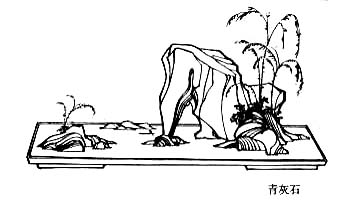Yi Jing 
 – I Ching, the Book of Changes
– I Ching, the Book of Changes
This famous system of 64 hexagrams plus their commentaries and transformations is at the root of Chinese thought. Tr. Wilhelm (en, fr).
| 19. Lin / Approach | ||||||||||||||||||||||||||||||||||||||||||||||||||||||||||||||||
| |||||||||||||||||||||||||||||||||||||||||||||||||||||||||||||||||
|
current binomial swap trig. opposite flip X leading master X constituent master
The Hexagram


Above K'UN THE RECEPTIVE, EARTH
Below TUI THE JOYOUS, LAKE
The Chinese word lin has a range of meanings that is not exhausted by any single word of another language. The ancient explanations in the Book of Changes give as its first meaning, "becoming great. " What becomes great are the two strong lines growing into the hexagram from below; the light-giving power expands with them. The meaning is then further extended to include the concept of approach, especially the approach of what is strong and highly placed in relation to what is lower. Finally the meaning includes the attitude of condescension of a man in high position toward the people, and in general the setting to work on affairs. This hexagram is linked with the twelfth month (January-February), when after the winter solstice, the light power begins to ascend again.
The Judgment


Perseverance furthers.
When the eighth month comes,
There will be misfortune.
The hexagram as a whole points to a time of joyous, hopeful progress. Spring is approaching. Joy and forbearance bring high and low nearer together. Success is certain. But we must work with determination and perseverance to make full use of the propitiousness of the time. And on thing more: spring does not last forever. In the eighth month the aspects are reversed. Then only two strong, light lines are left; these do not advance but are in retreat (see next hexagram). We must take heed of this change in good time. If we meet evil before it becomes reality–before it has even begun to stir–we can master it.
The Image


The image of APPROACH.
Thus the superior man is inexhaustible
In his will to teach,
And without limits
In his tolerance and protection of the people.
The earth borders upon the lake from above. This symbolizes the approach and condescension of the man of higher position to those beneath him. The two parts of the image indicate what his attitude toward these people will be. Just as the lake is inexhaustible in depth, so the sage is inexhaustible in his readiness to teach mankind, and just as the earth is boundlessly wide, sustaining and caring for all creatures on it, so the sage sustains and cares for all people and excludes no part of humanity.
Lower line


Joint approach.
Perseverance brings good fortune.
The good begins to prevail and to find response in influential circles. This in turn is an incentive to men of ability. It is well to join this upward trend, but we must not let ourselves be carried away by the current of the time; we must adhere perseveringly to what is right. This bring good fortune.
Second line


Joint approach.
Good fortune.
Everything furthers.
When the stimulus to approach comes from a high place, and when a man has the inner strength and consistency that need no admonition, good fortune will ensue. Nor need the future cause any concern. He is well aware that everything earthly is transitory, and that a descent follows upon every rise, but need not be confused by this universal law of fate. Everything serves to further. Therefore he will travel the paths of life swiftly, honestly, and valiantly.
Third line


Comfortable approach.
Nothing that would further.
If one is induced to grieve over it,
One becomes free of blame.
Things are going well for a man: he achieves power and influence. But in this lies the danger that he may relax, and confident of his position, allow the easygoing, careless mood to show itself in his dealings with other people. This would inevitably be harmful. But there is possibility of a change of mood. If he regrets his mistaken attitude and feels the responsibility of an influential position, he frees himself of faults.
Fourth line


Complete approach.
No blame.
While the three lower lines indicate rise to power and influence, the three upper lines show the attitude of persons in higher position toward those of lower rank for whom they procure influence. Here is shown the open- minded approach of a person of high rank to a man of ability whom he draws in to his own circle, regardless of class prejudice. This is very favorable.
Fifth line


Wise approach.
This is right for a great prince.
Good fortune.
A prince, or anyone in a leading position, must have the wisdom to attract to himself people of ability who are expert in directing affairs. His wisdom consists both in selecting the right people and in allowing those chosen to have a free hand without interference from him. For only through such self- restraint will he find the experts needed to satisfy all of his requirements.
Upper line


Greathearted approach.
Good fortune. No blame.
A sage who has put the world behind him and who in spirit has already withdrawn from life may, under certain circumstances, decide to return once more to the here and now and to approach other men. This means great good fortune for the men whom he teaches and helps. And for him this greathearted humbling of himself is blameless.
tao vibrant

I Ching, the Book of Changes – Yi Jing I. 19. – Chinese off/on – Français/English
Alias Yijing, I Ching, Yi King, I Ging, Zhou yi, The Classic of Changes (Lynn), The Elemental Changes (Nylan), Le Livre des Changements (Javary), Das Buch der Wandlung.
The Book of Odes, The Analects, Great Learning, Doctrine of the Mean, Three-characters book, The Book of Changes, The Way and its Power, 300 Tang Poems, The Art of War, Thirty-Six Strategies
Welcome, help, notes, introduction, table.
Index – Contact – Top









